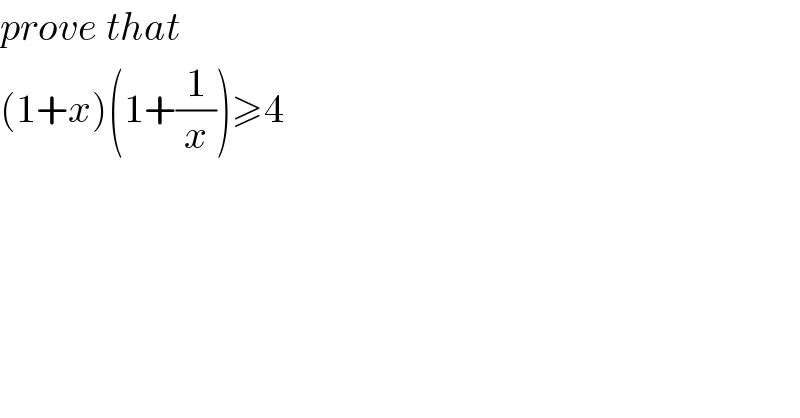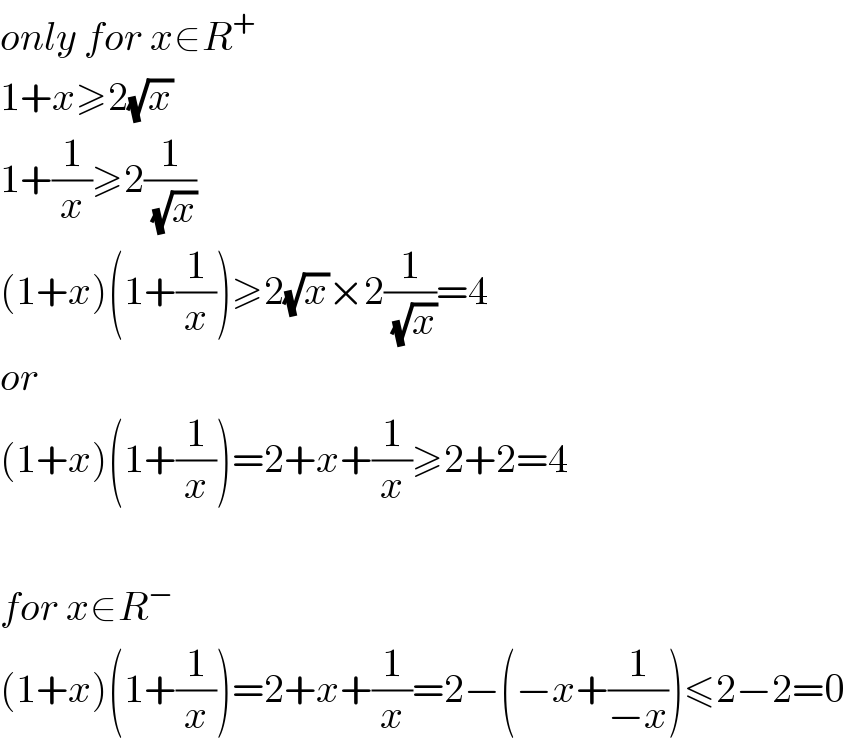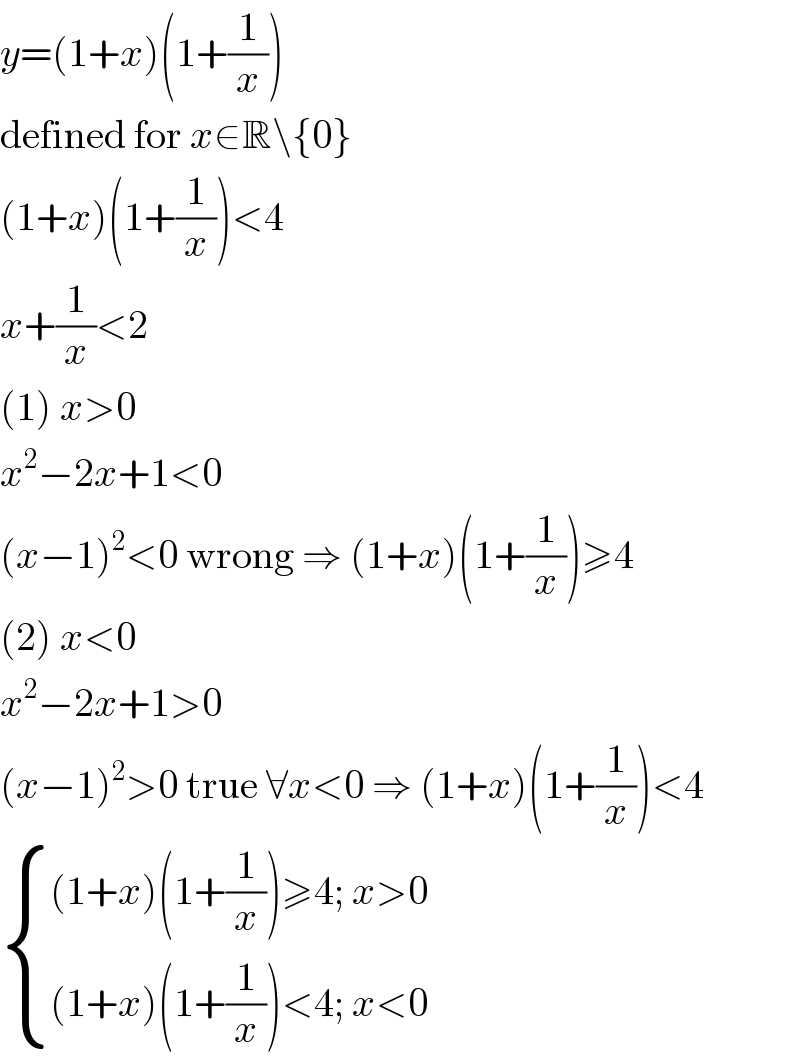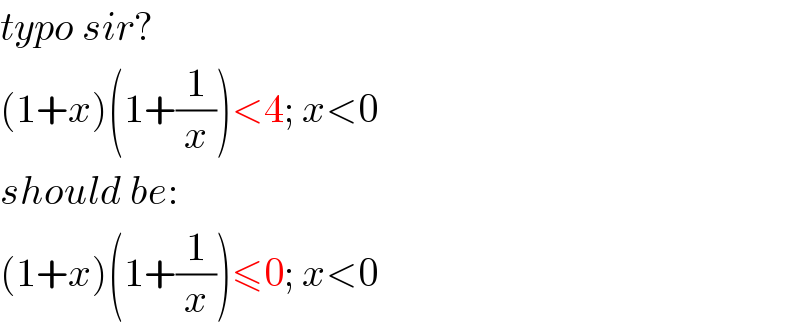
Question and Answers Forum
Question Number 80039 by jagoll last updated on 30/Jan/20

Commented by mr W last updated on 30/Jan/20

Commented by Tony Lin last updated on 30/Jan/20
![[1^2 +((√x))^2 ][1^2 +((1/(√x)))^2 ]≥(1+1)^2 =4](Q80044.png)
Commented by MJS last updated on 30/Jan/20

Commented by mr W last updated on 30/Jan/20

Commented by MJS last updated on 30/Jan/20

Commented by jagoll last updated on 31/Jan/20

Answered by $@ty@m123 last updated on 31/Jan/20
![Let y=(1+x)(1+(1/x)) ⇒y=2+x+(1/x) (dy/dx)=1−(1/x^2 ) For max. or min. (dy/dx)=0 1−(1/x^2 )=0 ⇒x=±1 y∣_(x=1) =4, y∣_(x=−1) =0 (d^2 y/dx^2 )=(1/x^3 ) [(d^2 y/dx^2 )]_(x=1) =1>0 ∴ y is mininmum at x=1 and min.(y)=4](Q80107.png)
